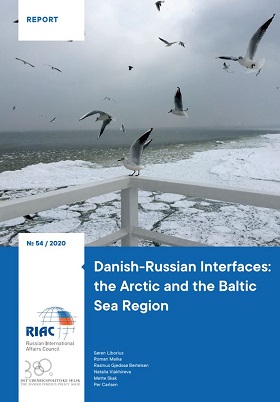Almost a year ago, the RAND Corporation published the report "Deterring Russian Aggression in the Baltic States Through Resilience". The title is self-explanatory—Russia is an aggressive state that has to be deterred.
In the very beginning, the authors state that the governments and citizens of Estonia, Latvia and Estonia are facing Russian propaganda and other nonmilitary activities on a daily basis. And that is just a part of a significant and insidious Russian campaign that designed to undermine trust in their institutions, foment ethnic and social tensions, and erode confidence in the collective defence commitments of the North Atlantic Treaty Organization (NATO). The report mostly consists of practical steps on countering Russian military aggression, such as providing volunteers with weapons and equipment. It also elaborates possible scenarios of Russia invading the Baltic countries. The point of this review is to dig deeper and try to find out what is behind such an unpleasant prognosis. Spoiler: it might be Ukraine.
In contrast to Atlantic Council reports, the RAND reports often have a more or less balanced point of view, it's not black and white, or at least it should not be. Reading the report without any background on what's happening in the world, one might think that there is a new World War where Russia invades everywhere in the world, using its "thoughtful" propaganda machine and capabilities for proxy wars.
Relations between Russia and the Baltic countries (as well as other countries in the Baltic Sea region) are very complex. And it has a lot of reasons: Russia' border with NATO, which creates more tensions. The Baltic states had a grim Soviet past, and they traditionally take a more cautious approach in relations with Russia. Nevertheless, Russia needs good ties with the Baltic states in terms of re-establishing relationships with the EU; otherwise, it will continue to see Russia as a problem neighbour. Nonetheless, following the history of president meetings between Russia and the Baltic counties, one can see, there is a little interest in the Baltics. Therefore there is no comprehensive strategy towards the region, which could possibly be a game-changer for Russia and the Baltic states as well.
Anyway, the RAND report doesn't analyze possible scenarios. It doesn't explain the reasons for poor relations between both sides. It doesn't bring any perspective except that people must get ready for war with sinister and dark Russia.
Almost a year ago, the RAND Corporation published the report "Deterring Russian Aggression in the Baltic States Through Resilience". The title is self-explanatory—Russia is an aggressive state that has to be deterred.
In the very beginning, the authors state that the governments and citizens of Estonia, Latvia and Estonia are facing Russian propaganda and other nonmilitary activities on a daily basis. And that is just a part of a significant and insidious Russian campaign that designed to undermine trust in their institutions, foment ethnic and social tensions, and erode confidence in the collective defence commitments of the North Atlantic Treaty Organization (NATO). The report mostly consists of practical steps on countering Russian military aggression, such as providing volunteers with weapons and equipment. It also elaborates possible scenarios of Russia invading the Baltic countries. The point of this review is to dig deeper and try to find out what is behind such an unpleasant prognosis. Spoiler: it might be Ukraine.
Episode I: Hybrid Menace
There is a brief explanation in the report trying to give Russia reasons to be that ominous. And who would have thought—the only reason mentioned in the report is the annexation of Crimea and supporting "the separatist insurgency in eastern Ukraine". Authors state that concerns in the US and the EU grew that three Baltic States could become the next target for Russia, with the states being vulnerable to the Russian hybrid campaigns. So what exactly is a hybrid campaign?
The report often highlights that the information and media campaigns are specific parts of Russia's hybrid war in the Baltic. Following the definition given in the report, "hybrid warfare is a complex of assertive policies, information operations, and covert and overt military and nonmilitary tactics (including cyber-attacks) by Russia and other countries to advance conflicting interests or territorial claims. It sometimes involves the limited application of force, just below thresholds that would trigger a conventional military response, and is often conducted in ways that create ambiguity about the parties involved, their goals, and validity of the legal and political claims at stake". The most infamous example of using hybrid techniques against the Baltic, according to the report, was a decision of the Estonian Parliament to relocate a WWII memorial statue outside the city. The reasonable reaction of Russian publicity was called a "sophisticated government operation using controlled media". It's difficult to imagine the Mardasson Memorial in Belgium, for instance, being removed and there being no reaction in the US (or any other country).
The report points out that Russian minorities in Baltic countries rely on Russian government-funded media, which has a sophisticated strategy aimed at undermining "trust in institutions, fomenting ethnic and social tensions and eroding confidence in NATO collective defence and commitments". Indeed, nowadays, the world's media is experiencing a colossal lack of objectivity. The current media profitability model, mixing expert columns and news, filter bubbles, fake news and echo chambers all make the situation even more chaotic. Frankly speaking, the Russian media system isn't far and away from the best. RT and Sputnik may sound like propaganda sometimes, and there were a lot of cases when it went overly aggressive and pushy. But the same works for the other side. Western media can also be biased when they cover Russian politics.
Media in the Baltics also isn't an example of unbiased and objective journalism. Authors forget to mention that the stigma of "dark Russia" still prevails in most Baltic media. Nonetheless, that's a problem that exists on both sides. There is no easy solution here and banning the media definitely isn't the right way.
There are a few recommendations in the report that suggest measures to counter Russian information warfare activities, such as funding independent Russian-language broadcast stations in the Baltic and facilitating their access to "Western entertainment that appeals to Russophone communities" and promoting resistance-related cultural content (movies, games, books, etc.). Authors blame Russia for propaganda in aggressive information campaigns, but at the same time, they propose what are essentially equal measures. The key is not banning Russia media in the Baltics, but rather providing people with media literacy and critical thinking classes.
Speaking of the possible Ukraine scenario, the authors mention that such probability is seen by most Baltic officials and analysts as highly unlikely. Nevertheless, this scenario gets an extension in the report. By using propaganda campaigns, Moscow "prepares the environment for clandestine or conventional military attacks […]. Moscow might covertly orchestrate or exacerbate a domestic incident involving the Russophone community to provoke a crisis and use the ensuing turmoil as a pretext to intervene militarily to protect the Russian minority". Indeed, the events in Ukraine in 2014 just brought distrust in the region. And this agenda is widely used by populist politicians who are eager to promote it to extend military support from NATO. But distrust doesn't mean real war. Distrust can be managed through dialogue and negotiation. Nevertheless, these prospects weren't considered by the authors.
Episode II. Russia Strikes Back
There is a section in the report dedicated to Russia's reactions and countermeasures. The report stresses out that Russian military exercises must be addressed in "planning military operations against potential adversaries". After all, it's not only Russia who conducts military exercises in the Baltic Sea region. It should also be considered that Russia's actions might be reactive rather than active. Authors probably forgot to mention it wasn't Russia who came to NATO border, rather the opposite. It was NATO who expanded its military contingent three times since 2012.
Moreover, debates in Finland and Sweden on joining NATO and NATO military buildup make Russia more perceptive. No one side is responsible for the tension in the region. No one should be blamed. However, it should be noted that there are reasons why both sides act provocatively.
Here authors also reflect on the past, remembering Soviet times and coming to the conclusion that resilience is key to all problems. "Enhancing Baltic resilience efforts could frustrate Russian concepts designed to achieve rapid victory by breaking societies". Indeed, it's difficult to argue—making stable and resilient states is good for the stability in the region. But at what cost?
The report in the recommendations sector insists that the US should pursue additional actions to help the Baltic states. There is a point in the expert community that bringing one more power to the region will make it more complicated, unstable and confrontational. Undoubtedly no question why RAND proposes to bring the US to the Baltics, however in terms of making the region more stable, the recommendation remains doubtful.
In contrast to Atlantic Council reports, the RAND reports often have a more or less balanced point of view, it's not black and white, or at least it should not be. Reading the report without any background on what's happening in the world, one might think that there is a new World War where Russia invades everywhere in the world, using its "thoughtful" propaganda machine and capabilities for proxy wars.
Relations between Russia and the Baltic countries (as well as other countries in the Baltic Sea region) are very complex. And it has a lot of reasons: Russia' border with NATO, which creates more tensions. The Baltic states had a grim Soviet past, and they traditionally take a more cautious approach in relations with Russia. Nevertheless, Russia needs good ties with the Baltic states in terms of re-establishing relationships with the EU; otherwise, it will continue to see Russia as a problem neighbour. Nonetheless, following the history of president meetings between Russia and the Baltic counties, one can see, there is a little interest in the Baltics. Therefore there is no comprehensive strategy towards the region, which could possibly be a game-changer for Russia and the Baltic states as well.
Anyway, the RAND report doesn't analyze possible scenarios. It doesn't explain the reasons for poor relations between both sides. It doesn't bring any perspective except that people must get ready for war with sinister and dark Russia.







